#elizabeth sellars
Text

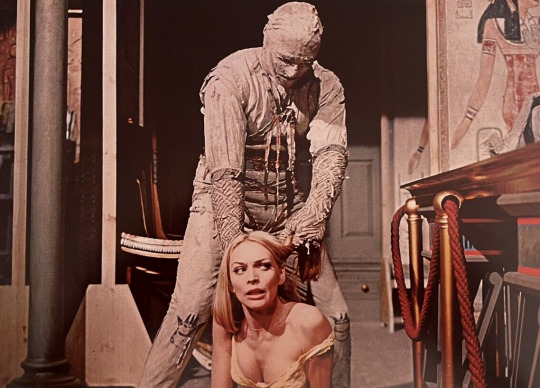

The Mummy's Shroud (1967)
#the mummy's shroud#eddie powell#elizabeth sellars#john phillips#1967#1960s horror#1960s movies#john gilling#hammer films#hammer horror
81 notes
·
View notes
Text

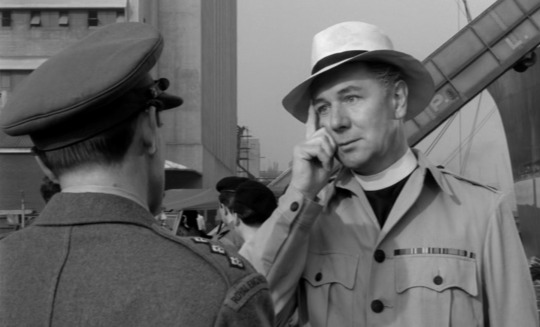
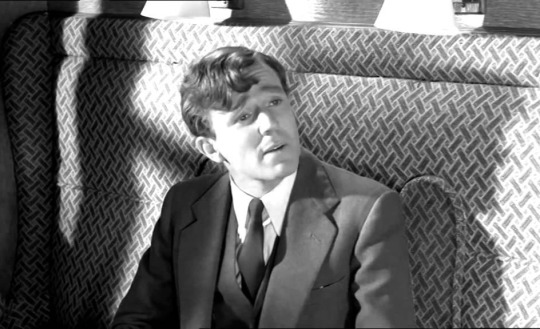

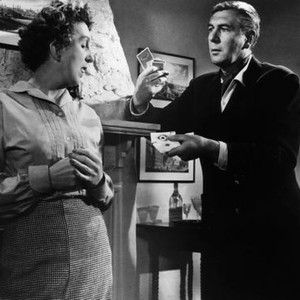
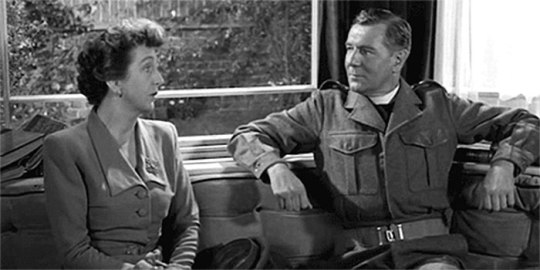

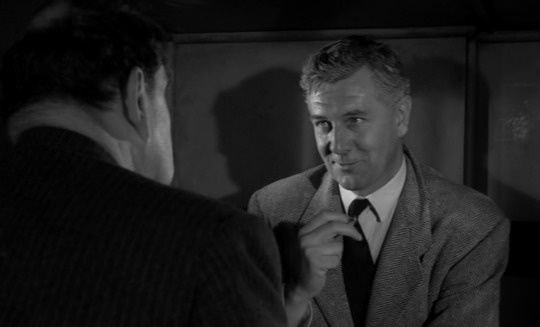

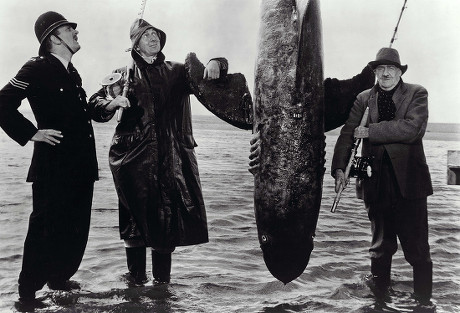
Law and Disorder (1958)
"Right, now listen boys, it's all lined up: we're getting rid of the judge."
"What?"
"Knock off a judge? You must be raving, we'll spend the rest of our lives in clink."
"Here, let me out!"
"We don't have to touch him. Police are gonna arrest him."
"Oh, that's better. Thought we'd turned nasty."
#law and disorder#1958#british cinema#charles crichton#t.e.b. clarke#michael redgrave#robert morley#ronald squire#joan hickson#lionel jeffries#elizabeth sellars#brenda bruce#jeremy burnham#george coulouris#meredith edwards#harold goodwin#john le mesurier#allan cuthbertson#michael trubshawe#sam kydd#john paul#minor brit comedy whose irreverence and slightness is really a strength; there isn't a lot to this‚ but it's honestly#so charming and so feather light that you can't help but be kind of swept along with it. a lot of what works rests on Redgrave's shoulders#in a beautifully measured turn as an unrepentant con artist who views increasingly long stretches in prison as a fair trade for the money#he can make and put away for the betterment of his son (who of course‚ knowing nothing of his father's 'work'‚ chooses to pursue a#career in the law). Morley at first appears to be playing the same kind of larger than life cartoonish buffoon he so often did but to the#credit of the film his character is revealed to have more nuance and more depth than expected in the final act. the supporting cast is wall#to wall brit character acting legends and that was the main appeal for me; nearly every speaking role is taken by someone of note‚ even if#(as in the case of permafave Alfie Burke) it's literally just 30 seconds of screentime. disposable fluff at the end of the day‚ but a#delightful kind of fluff‚ and a moreish kind‚ like cotton candy.
8 notes
·
View notes
Text



W A T C H E D
#THE MUMMY'S SHROUD (1967)#Andre Morell#John Phillips#David Buck#Elizabeth Sellars#Michael Ripper#Tim Barrett#Richard Warner#Roger Delgado#Catherine Lacey#Dickie Owen#Bruno Barnabe#Eddie Powell#MONSTER MOVIE#horror film#Hammer horror#watching
0 notes
Photo

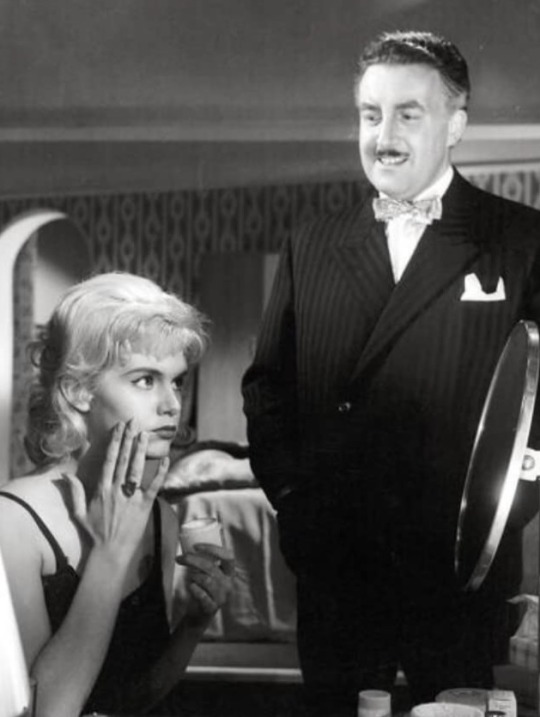
Never Let Go 1960
#Never Let Go#1960#john guillermin#peter sellers#qui en fait déjà un peu trop !!#richard todd#elizabeth sellars#6/10
1 note
·
View note
Text
The Hireling (1973)
The Hireling (1973)
ALAN BRIDGES
Bil’s rating (out of 5): BBBB.5
United Kingdom, 1973. Columbia Pictures, World Film Services. Screenplay by Wolf Mankowitz, based on the novel by L.P. Hartley. Cinematography by Michael Reed. Produced by Ben Arbeid. Music by Marc Wilkinson. Production Design by Natasha Kroll. Costume Design by Phyllis Dalton. Film Editing by Peter Weatherley.
Class stratification goes hand in hand…

View On WordPress
#Alan Bridges#Alison Leggatt#Ben Arbeid#Cannes 1973#Caroline Mortimer#Christine Hargreaves#Columbia Pictures#Elizabeth Sellars#Ian Hogg#L.P. Hartley#Lyndon Brook#Marc Wilkinson#Michael Reed#Natasha Kroll#Patricia Lawrence#Peter Egan#Peter Weatherley#Petra Markham#Phyllis Dalton#Robert Shaw#Sarah Miles#United Kingdom#Wolf Mankowitz#World Film Services
1 note
·
View note
Text

Ponche de Navidad
Elizabeth Ortiz
En una esquina de la cocina, el ponche de Navidad burbujeaba en una cacerola grande, desprendiendo una fragancia que le hacía recordar a Martín su niñez.
Llevaba varios años siendo el único hijo que acompañaba a Elena, su madre, en un hogar que parecía haberse vuelto más grande, silencioso y pacífico: Sin los gritos y peleas con Mariana y Claudia, sus hermanas. El único que lo entendía era Santiago, su hermano mayor, quien vivía en Suiza desde que entró a la universidad y, a pesar de estar lejos, siempre estaba presente para él, encontrando la manera de calmarlo después de cada riña; sabía que, con ellas, sus consejos sobre mujeres nunca funcionaban.
A partir de que a Elena le habían diagnosticado el mal de Parkinson, todas las puertas de la casa se abrían con más frecuencia por tantas personas que llegaban a cuidarla. En especial, la de la cocina esa noche, ventilaba el aroma del ponche cocinándose y se apoderaba de los sentidos de Martín. La combinación del perfume de las guayabas con la canela y la jamaica, eran sus favoritos desde pequeño y también los de Elena; al menos eso le decía ella cada vez que se acercaba para ver cómo lo preparaba. A pesar de sus limitados movimientos, con un poco de ayuda Elena no había perdido el toque en la preparación; el olor seguía siendo el mismo, pero ella ya no podía deleitarse con él. Eso le generaba a Martín una pesada carga de culpa.
Cuando apenas había cumplido la mayoría de edad, la idea de salir de fiesta y consumir alcohol se había convertido en un anhelo casi tangible en su mente. Percibía esa experiencia como una especie de inauguración a un territorio desconocido y emocionante. Se sentía fascinado con la adrenalina de la música resonando en sus oídos, el bullicio de la multitud y la sensación de soltura que el alcohol prometía traer consigo. Cada sorbo parecía sellar su entrada a una nueva vida, dejando atrás la adolescencia. Al regresar a su casa, mientras giraba la llave en la cerradura sentía un nudo en el estómago, porque sabía que su madre desaprobaba ese comportamiento. Sin embargo, ella estaba muy cansada en esa época y pocas veces se despertaba. Con el tiempo, el chico empezó a notar que, aunque él creía que el olor que quedaba en su aliento era evidente, su madre parecía no percibirlo. Solo se enojaba porque llegaba tarde, pero jamás le reclamó por haber tomado. Martín aparentaba conservar el equilibrio y permanecer en silencio para que Elena no lo notara.
Ya había pasado casi un mes después de que los cuatro hermanos discutían en una videollamada el tratamiento médico que debía seguir Elena, llegando a la conclusión de que lo mejor sería buscar una segunda opinión en la que Claudia, Mariana y Martin pudieran plantear todas sus dudas al especialista. Durante la consulta, Martín se vio obligado a contradecir a Elena cuando le dijo al médico que apenas hacía un par de años había perdido el olfato, solo él sabía que ya habían pasado más de cinco. Gracias al médico, las hermanas pudieron comprender que la situación no era fácil para nadie y que los síntomas del trastorno no eran evidentes. Él les recomendó no buscar culpables, sino seguir sus instrucciones de manera puntual para determinar si era necesaria o no una cirugía.
Mariana le pidió a Martín que le ayudara a servir las tazas con ponche y, mientras lo hacía, el aroma le taladraba el corazón. Recordó cómo Elena le daba besos en sus manitas cuando de niño se quemó en una ocasión al tocar una de las tazas. ¿Qué hubiera pasado si hubiera confesado todo desde el principio? Era evidente que eso no hubiera impedido que Elena perdiera el olfato y la movilidad, pero el peso que sentía era abrumador. A pesar de que sabía que su madre lo adoraba, también sabía que se sentía traicionada y difícilmente las cosas serían como antes y eso de verdad lo atormentaba.
0 notes
Text

Found (didn't buy) in second-hand bookshop.
Info from the inside cover:
This is the story of how Scottish chiefs and lairds preferred The Great Cheviot Sheep (“finely shaped, with countenance mild and pleasant”) to the clansmen who had once been their warrior rent-roll. Between 1790 and 1850 a whole race was dispossessed and dispersed.
The uprooting of the Highland people, and the final destruction of their society in favour of wool and mutton, was actively supported by the Law and by the Established Church. In some counties, Sutherland particularly, it was called Improvement. Roads were built through emptied glens, bridges crossed deserted rives. When the “idle and indolent peasantry” protested, their ministers told them that the laird’s wish was God’s will, and that famine and pestilence, which came all too frequently in the wake of eviction, were a Divine punishment on a sinful and lazy people.
The Highlanders were defenceless against the new sheep economy. They were the victims of their own traditions, and of the melancholy that had lain on their spirits since the military defeat of the clans at Culloden. They were betrayed by their chiefs, whose children they believed themselves to be. The lairds of Clanranald, Atholl, Breadalbane, Lochiel, Ross, Sutherland, Argyll and the Isles became the chiefs of roast lamb and worsted cloth. Their people went to the slums of Glasgow, or died of fever and smallpox on their way to Upper Canada and the stockfarms of Australia.
The story is told, where possible, in the words of the people, or of those few men who wrote in their defence. It is told, too, in the words of those who defended the Improvement: Donald Macleod of Geanies, the militant Sheriff of Ross; James Loch and Patrick Sellar, who brought 200,000 sheep to Sutherland; Mrs Beecher Stowe*, who found no Uncle Tom’s Cabin in Sutherland and who equated civilisation with the sale of shoe-blacking**.
Info from Wikipedia:
Harriet Beecher Stowe was the American author of 'Uncle Tom's Cabin; or, Life Among the Lowly', an anti-slavery novel published in 1852, which had a profound effect on attitudes toward African Americans and slavery in the U.S., and is said to have "helped lay the groundwork for the [American] Civil War".
Stowe was controversial for her support of Elizabeth Campbell, Duchess of Argyll, whose father-in-law decades before was a leader in the Highland Clearances, the transformation of the remote Highlands of Scotland from a militia-based society to an agricultural one that supported far fewer people. The newly homeless moved to Canada, where very bitter accounts appeared. It was Stowe's assignment to refute them using evidence the Duchess provided and as a result she was criticized for her seeming defense of the clearances.
** I don't understand the comment about shoe-blacking.
0 notes
Text
Do you want to know about Flynn Earl Jones?
Flynn Earl Jones was born in Los Angeles, California, USA in 1982. Flynn Earl Jones is an American voice actor who is also known for being the only child of star James Earl Jones of “Star Wars”.
Early Life and Education
Flynn Earl Jones is the only child of his parents Cecilia Hart and James Earl Jones. In 2022, he becomes 40 years old. Flynn Earl Jones grew in California along with his parents. There is not much information is revealed about his early life and education.
Career Beginnings
Flynn Earl Jones wants his career which was not exposed to the media. That’s why, in 1999, he wanted to pursue his career in voice acting and focused mainly on audio books. He had voice with a wide variety of books of different genres which includes sci-fi books like “New Worlds” and erotic books “Heartthrob”. Flynn Earl Jones mostly narrations are found to be Audible. Right now, it is rumored that he worked as the personal assistant of his father.

Personal Life
On 29 November 2019, Flynn Earl Jones gets married to Lorena Monagas at Tarrytown House and Estate. The registry of their honeymoon is available online where they asked their family and friends to contribute money so they witness Northern Lights in Iceland. They both want to keep their relationship private.
James Earl Jones His Father
Flynn Earl Jones father, James Earl Jones was born in Mississippi on 17 January 1931. His parents help him to become an actor in Hollywood. He started developing his career as a stutter when he was a child and later tells Hollywood Reporter that he avoids speaking around others. After matriculation from high school he studied pre-med at University of Michigan but drop out when he find his love for acting. In 1964, he was debut in his film “Dr. Strangelove or: How I Learned to Stop Worrying and Love the Bomb” which was directed by Stanley Kubrick which starred Peter Sellars. Then he played a Haitian rebel surgeon in “The Comedians” with major stars Elizabeth Taylor and Richard Burton.
Flynn Earl Jones Net Worth
Flynn Earl Jones is 1.78m tall and weighs around 80kgs. He has brown eyes with curly and short brown hair. The estimated net worth of Flynn Earl Jones was not known but his father’s net worth is around $40 million. For more details visit: https://biographypost.org/the-untold-truth-about-james-earl-jones-son-flynn-earl-jones/
1 note
·
View note
Photo
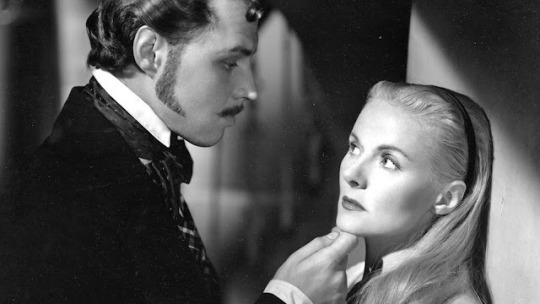
Ivan Desny and Ann Todd in Madeleine (David Lean, 1950)
Cast: Ann Todd, Norman Wooland, Ivan Desny, Leslie Banks, Barbara Everest, Patricia Raine, Susan Stranks, Elizabeth Sellars, Eugene Deckers, André Morell, Barry Jones, Edward Chapman, Jean Cadell. Screenplay: Stanley Haynes, Nicholas Phipps. Cinematography: Guy Green. Production design: John Bryan. Film editing: Clive Donner, Geoffrey Foot. Music: William Alwyn.
I wanted Madeleine to have the emotional depth of Brief Encounter (1945) or the imaginative finesse of Oliver Twist (1948), just to sustain my argument that David Lean was a greater director before he aimed for the epic scale of The Bridge on the River Kwai (1957), Lawrence of Arabia (1962), and Doctor Zhivago (1965). But even Lean would later admit that Madeleine is something of a dud. The story of an "unproven" murder -- the verdict the Glasgow jury returned at the trial of the real Madeleine Smith -- the film needs to generate a Hitchcockian tension that Lean never quite masters. One reason, I think, is that it stars the rather pallid Ann Todd, Lean's wife, who had played Madeleine Smith in a stage version of the story, when it needs a more accomplished and charismatic actress, a Deborah Kerr or a Jean Simmons, to bring out the ambiguities in the character. Todd rises to the role only in the final scene, when Madeleine rides away a free woman, a mysterious smile flickering across her face as the voiceover narrator questions whether she was guilty or not guilty. Otherwise, she generates little heat in her love scenes with Ivan Desny as L'Anglier* and the scene in which she throws him over for her father's choice as a fiancé, William Minnoch (Norman Wooland), comes as an abrupt about-face. Lean seems to be trying to do something with the character of the lover, including much business with his brandishing a phallic walking stick, but it doesn't come off. On the plus side, there are good performances by Leslie Banks as Madeleine's father, the quintessential tyrannical Victorian paterfamilias, and André Morell gives a rousing argument for the defense in the trial scene. Guy Green's chiaroscuro cinematography creates the proper mood, as do John Bryan's sometimes oppressive interiors.
*The spelling in the credits. The historical figure was called L'Angelier, which is also the way André Morell, playing the defense counsel, pronounces it.
1 note
·
View note
Text
Sellar unveils £1.5 billion Liverpool Street station scheme
Sellar unveils £1.5 billion Liverpool Street station scheme
The scheme was developed by a tripartite joint venture between Shard builder Sellar, MTR operator Elizabeth Line and Network Rail.
The £1.5 billion scheme will include a £450 million program of infrastructure work financed through a private sector partnership to modernize the plant to ease congestion.
A new vision for Liverpool Street Station is being developed in collaboration with the…

View On WordPress
0 notes
Text
Tweeted
When Darkness Loves Us by Elizabeth Engstrom. Cover art by Jill Bauman. #horror https://t.co/YzulXXRVw3
— Michael Sellars | Debut Novel Out 19th May (@HorrorPaperback) May 5, 2022
0 notes
Text
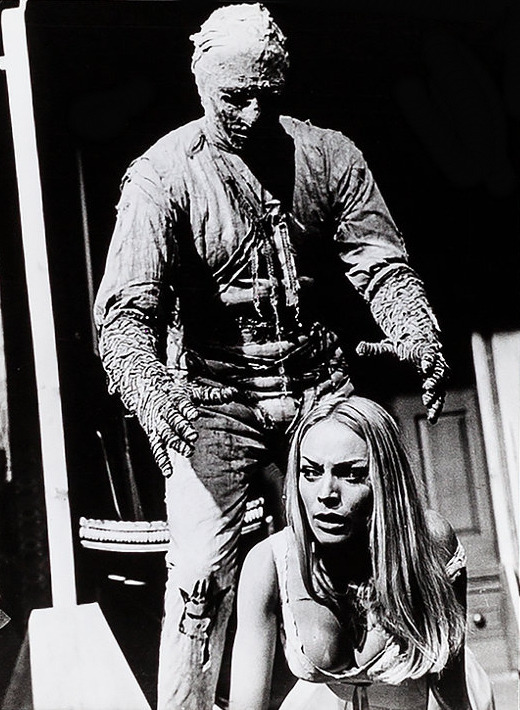
The Mummy's Shroud (1967)
146 notes
·
View notes
Photo
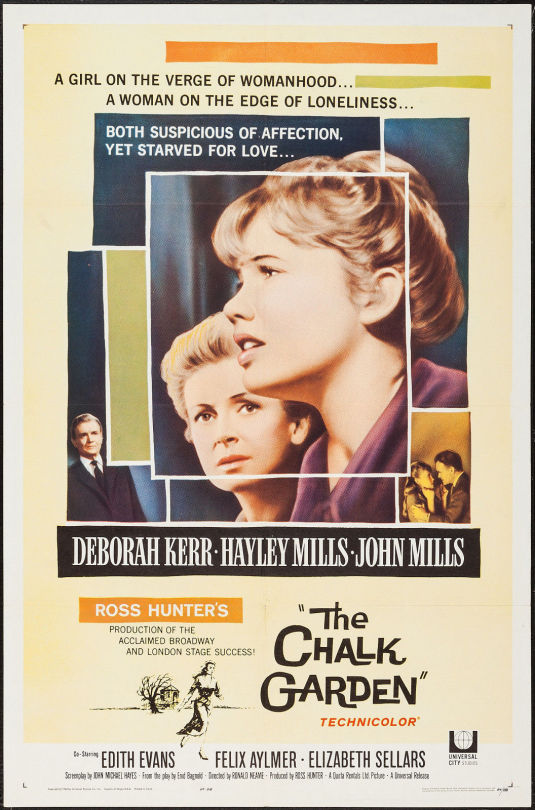
#the chalk garden#deborah kerr#hayley mills#john mills#edith evans#elizabeth sellars#felix aylmer#ronald neame#1964
26 notes
·
View notes
Text

Elizabeth Sellars-David Niven "55 días en Pekín" (55 days at Peking) 1963, de Nicholas Ray.
14 notes
·
View notes
Photo

Three Cases of Murder
directed by David Eady, George More O’Ferrall, Wendy Toye, and Orson Welles, 1955
#Three Cases of Murder#The Picture#You Killed Elizabeth#Lord Montdrago#David Eady#George More O'Ferrall#Wendy Toye#Orson Welles#movie mosaics#Hugh Pryse#Emrys Jones#Eddie Byrne#Alan Badel#Helen Cherry#John Gregson#Elizabeth Sellars
9 notes
·
View notes
Text



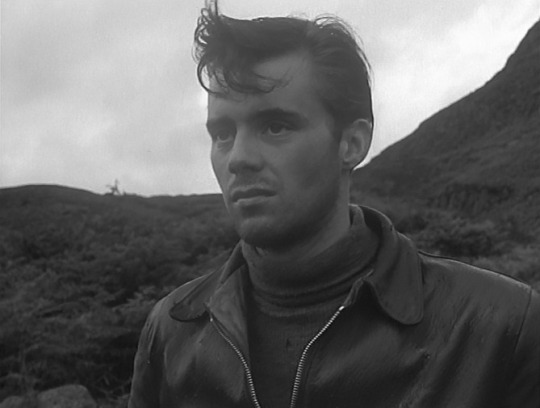
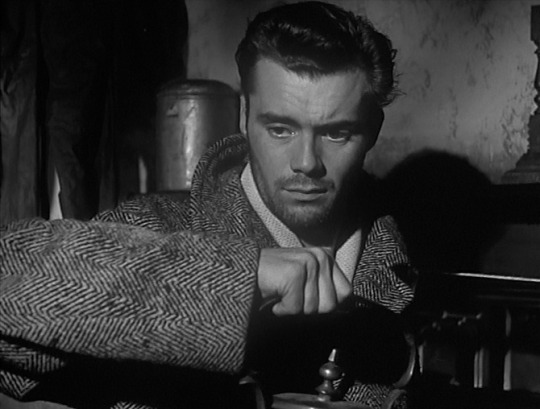
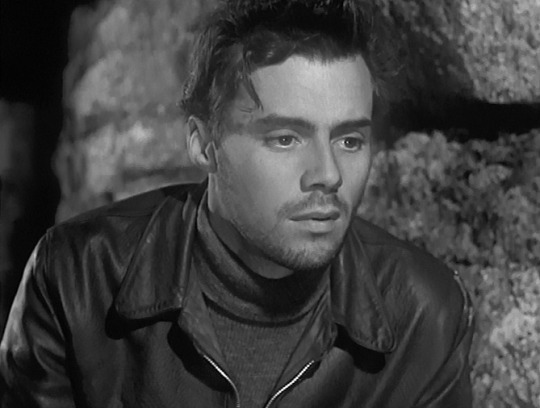
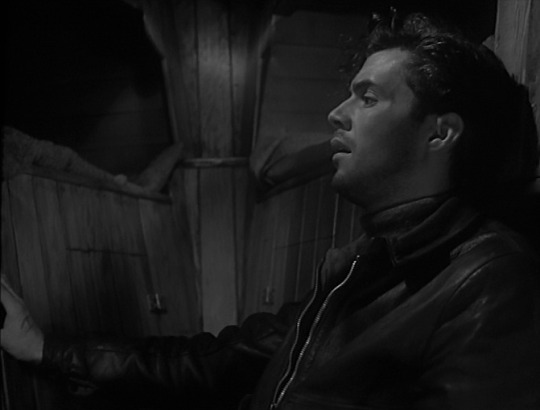

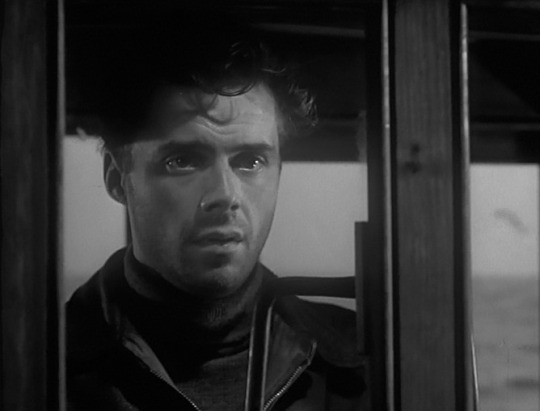
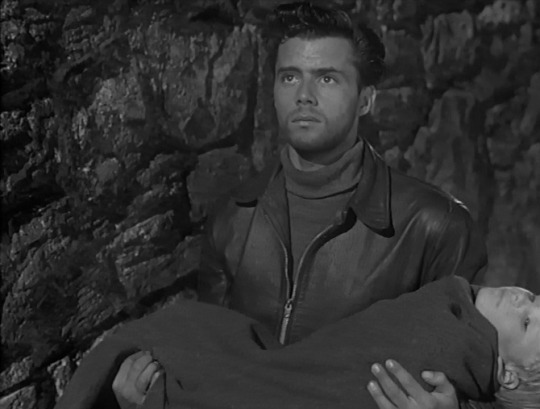
Hunted (1952) Dir: Charles Crichton
Starring-Dirk Bogarde, Jon Whiteley, Kay Walsh, Elizabeth Sellars
Photo Set 2 of 2 (Photos 11-20)
#dirk bogarde#hunted#1952#charles crichton#jon whiteley#kay walsh#elizabeth sellars#screencaps#screengrabs#my edits#photo set 2 of 2
139 notes
·
View notes